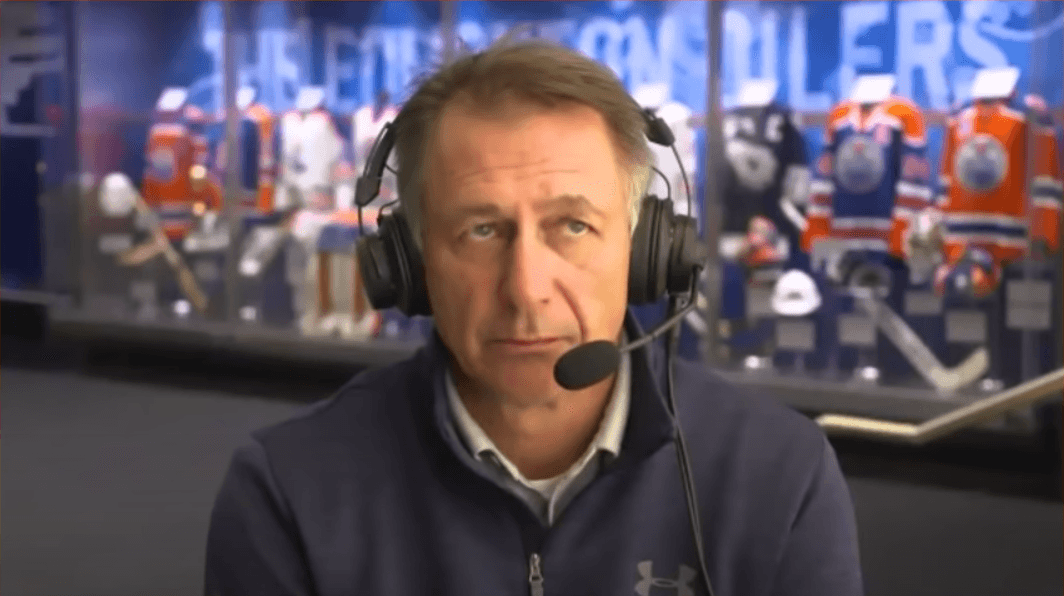Over at Daily Faceoff, Frank Seravalli and Jason Gregor welcomed Oilers general manager Ken Holland to the DFO Rundown to discuss his career as an NHL executive.
Holland touched on a handful of interesting topics, including the lessons he learned in Detroit, the shift of moving to Edmonton to work with the Oilers, navigating the implementation of the salary cap, and learning how to be patient.
On making the transition to Edmonton…
Seravalli: So much of your life and career has been spent in Detroit as a member of the Red Wings. Was there at any point that it kind of hit you making the transition from one club to the other? All the Red Wings gear in your closet and all the different things that you’ve accumulated over the years, to then switch over and being around a new team?Holland: I had been a Red Wing for 36 years and at the press conference when I was there with Daryl Katz and Bob Nicholson and they had the Oilers logo behind me, for the next day or so I had lots of people text me that I looked kind of strange with the logo behind me.Great ownership in Katz and I’ve known Bob Nicholson for a long time, he’s a Penticton boy which means he grew up 90 miles down the road from me. I’ve been with Bob with the Canadian Olympic Team and the Canadian Men’s Worlds, so I’ve got a relationship with Bob that goes way back. I’m very, very fortunate to get another opportunity, that they believed I could come in and help make the team better.The first few days were a little bit strange. I’d get into a meeting and I’m supposed to be talking about the Oilers or Bakersfield and I’d say Red Wings or Grand Rapids but, in short order, I made the switch. I’m an Oiler and Western Canadian boy. I’m proud to have an opportunity to manage a Western Canadian team that’s got a great fanbase.
On Jesse Puljujarvi and learning patience…
Gregor: One of the first things in Edmonton was to patch things up with Jesse Puljujarvi. You obviously hadn’t been there when he had struggled with the organization. If this happens in 1997 or 1998 when you’re a young GM, are you as patient with Puljujarvi’s camp as you were when you were in Edmonton? Did you learn patience in 25 years?Holland: Jason, the answer is yes. I can tell you a story, I remember becoming the GM in 1997 and one of the first things I did was trade the Conn Smythe Trophy winner, Mike Vernon, away to San Jose because we had a young Chris Osgood.Today, I’d tell them to get out there, you’re both on the team, we’re strong in the net, and you guys figure it out. So, certainly by being a manager for 25 years, you learn things as you go, and I think patience is one of them. If your team is down, you tell them to hang in there, don’t overreact. The NHL is an 82-game season, it’s a roller coaster ride. Absolutely, the 25 years of being a general manager effects the way I make decisions now.
On learning how to work with the salary cap…
Gregor: You took over a team at the top at a time when you had an owner who was willing to spend and there was no salary cap. How much did the salary cap change your approach as a GM? You’e been in the salary cap era for 15 years, but how different was it as a GM? Before you could just go out and you could almost sign or trade for any player because you didn’t have to worry about money.Holland: One of the things I’m really proud of is that in 2005 when the cap came in, we bought out Darren McCarty, Ray Whitney, Derian Hatcher, we our pro scouts go out and find guys like Dan Cleary, brought back Chris Osgood, and we had 126 points the first year of the salary cap. We lost in the first round to Edmonton, I think we made the playoffs 10 consecutive years in the salary cap era, we were the last team to miss the playoffs in the salary cap era, so I feel proud that we were able to make that adjustment. We had a $70 million payroll in 2003-04 and we had to find a way with a $39 million payroll in 2005-06 to be competitive and we had 126 points and won the Presidents’ Trophy.It’s a credit to the job that Mark Howe and our pro scouts did to dig through the bushes and find some players who were looking for an opportunity and we found four or five players who came in, I mentioned Dan Cleary and Chris Osgood and three or four others. Certainly having Nik Lidstrom, and that was the beginning of Zetterberg and Datsyuk, Yzerman retired after 2005-06, so Zetterberg and Datsyuk grabbed the team and carried them for another decade.The salary cap is great for the game. It gives all fans of any team the belief that they can be competitive. Prior to 2005 it was probably six or eight teams who could win the Stanley Cup, all the high-priced payroll teams, Dallas, Detroit, Colorado, Philadelphia, the Rangers, Toronto, and then there was a big drop, so it’s a wonderful system for competitive balance.
You can listen to the full episode here…

